The Billies: Country Life's 2017 theatre awards, from best play to Ayckbourn's 'crushing disappointment'
After watching new productions at a rate of about four a week, our theatre critic Michael Billington presents the brilliantly good, the excruciatingly bad and the movingly sad of this year.
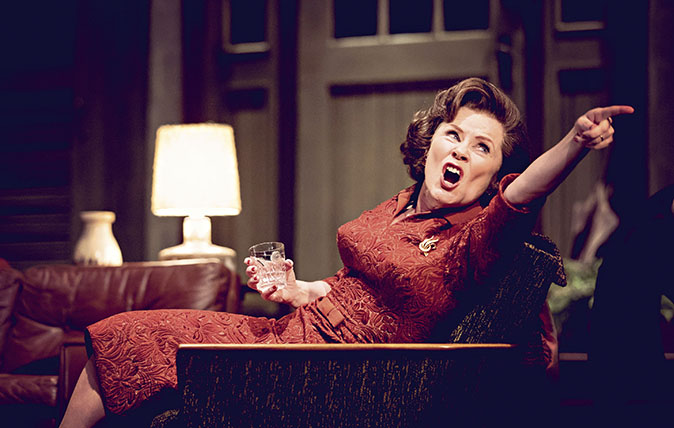

Hollywood has its Oscars and Broadway its Tonys. Here, based on 200 nights spent in theatres in 2017, are the Billies: my idiosyncratic selection of the best and worst of the tumultuous past 12 months.
Best new play: The Ferryman
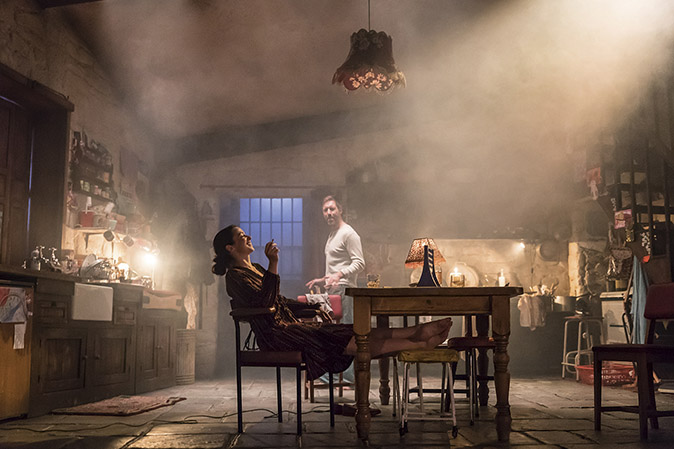
It’s been a big year for live animals on stage, with goats and dogs making stellar appearances. It’s not just because Jez Butterworth’s The Ferryman includes real rabbits and a goose in the cast that it gets my vote, it’s because the play encompasses so much: a Northern Irish political thriller, a study of unspoken love and a Thomas Hardy-like evocation of timeless rural rituals.
In an outstanding year for new plays – Albion, Ink, Girl from the North Country and Consent – Mr Butterworth’s play takes the prize (as it did at this month’s London Evening Standard Theatre Awards).
Worst new play: The Divide
It pains me to say this, as I’m a long-standing admirer of his work, but Sir Alan Ayckbourn’s The Divide was the year’s most crushing disappointment. This futuristic drama, set in a world of enforced sexual segregation in which the species is continued by artificial insemination, occupied six energy-draining hours of one’s time at the Edinburgh Festival and is destined to have a brief afterlife at the Old Vic. Sir Alan’s genius is for exposing the absurdities of the here and now rather than for taking the road to dystopia.
Most striking newcomer: Erin Doherty
If one good thing came out of The Divide, it was the emergence of Erin Doherty. It fell to her to convey the sweetness and sadness of a woman who saw herself as a reborn Jane Eyre. Miss Doherty went on to enhance her reputation as the eponymous heroine of My Name is Rachel Corrie at the Young Vic, in which she played a young American activist crushed by an Israeli army bulldozer.
To cap an amazing year, she’s currently playing Scrooge’s spurned sweetheart in the Old Vic’s superb A Christmas Carol. There’s something about her capacity to shift in a second from dolefulness to delight that marks her out as a future star.
Most enjoyable musical: Young Frankenstein
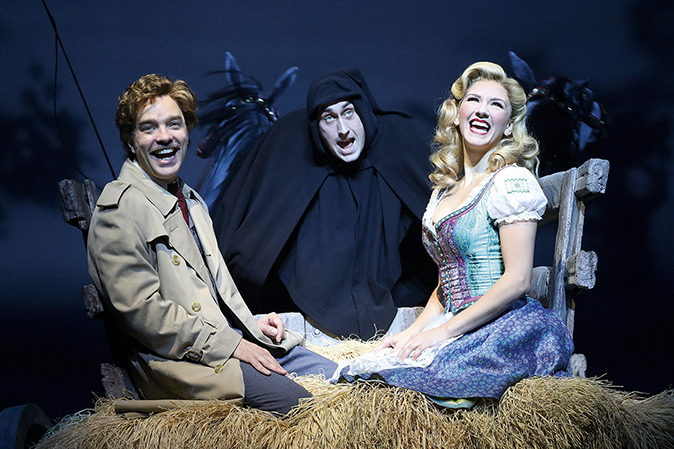
Follies has more depth and An American in Paris better dancing, but, purely on the pleasure principle, I would opt for Mel Brooks’s Young Frankenstein. A century ago, the American critic George Jean Nathan wrote that one doesn’t go to a music show ‘for a Bjornson plot or the symphonic poems of a Liszt’. Similarly, one doesn’t go to a Mel Brooks musical for subtlety, but for a cornucopia of gags that make a bonfire of good taste. This one is also exhilaratingly performed, with Summer Strallen lighting up the stage as a yodelling Transylvanian.
Sign up for the Country Life Newsletter
Exquisite houses, the beauty of Nature, and how to get the most from your life, straight to your inbox.
Most exciting Shakespeare revival: Titus Andronicus
Titus Andronicus was once described as ‘blood-bolter’d balderdash’, but, every time I see it, my admiration increases. Blanche McIntyre’s RSC production, currently at London’s Barbican, did not downplay the violence, but reminded us that the play is a masterly study of grief.
The scene in which the venerable Titus confronts his ravaged, mutilated daughter, Lavinia, moved me more than anything I saw on stage all year, partly because of the sight of David Troughton’s soldierly stoicism disintegrating in the face of Hannah Morrish’s enforced silence and partly because of Shakespeare’s capacity, long before King Lear, to plumb the depths of human suffering.
Worst Shakespeare revival: Romeo and Juliet
This one’s easy: Daniel Kramer’s production of Romeo and Juliet at Shakespeare’s Globe was a horror. Black-robed figures bearing mini-coffins desperately signalled the play’s ending from the outset. The Capulets’ ball was a grotesque affair, with everyone in animal masks, the host attended by a bloke on all fours and the guests dancing to the Village People’s YMCA. Even the normally excellent Kirsty Bushell was forced to shriek and scream as a pampered Juliet. The only cheering factor is that Emma Rice has now departed as the Globe’s artistic director.
Most inspiring performers: Bryan Cranston and Imelda Staunton
The list is long but, apart from those already mentioned, I would single out two outstanding actors. Bryan Cranston was astonishing as the newscaster suffering a nervous breakdown in the National Theatre’s Network: he not only had the weathered features of a veteran anchorman, but made you listen to the demented hero’s diatribes.

Imelda Staunton once again showed her limitless range. One month, she was the foul-mouthed but vulnerable Martha in Who’s Afraid of Virginia Woolf? and the next, she was the self-deluding Sally in Follies, lovingly singing In Buddy’s Eyes in the belief she was still adored by her husband. Is there nothing she can’t do?
Most attractive new theatres: Chester's Storyhouse and London's The Bridge
One of my biggest treats was visiting Chester’s newly opened Storyhouse, where a theatre has been perfectly integrated into a building also containing a library and cinema. At the opening and very lively summer production by Loveday Ingram of Julius Caesar, it was heartening to see book borrowers mingling with theatregoers.
London’s The Bridge is an architectural triumph; it sits conveniently on the south side of Tower Bridge, has a spacious foyer, a big bar, comfortable seats and perfect sightlines. Young Marx got it off to a vigorous start and I suspect there are even better evenings to come.
Most exciting regional theatre: Ustinov Studio, Bath
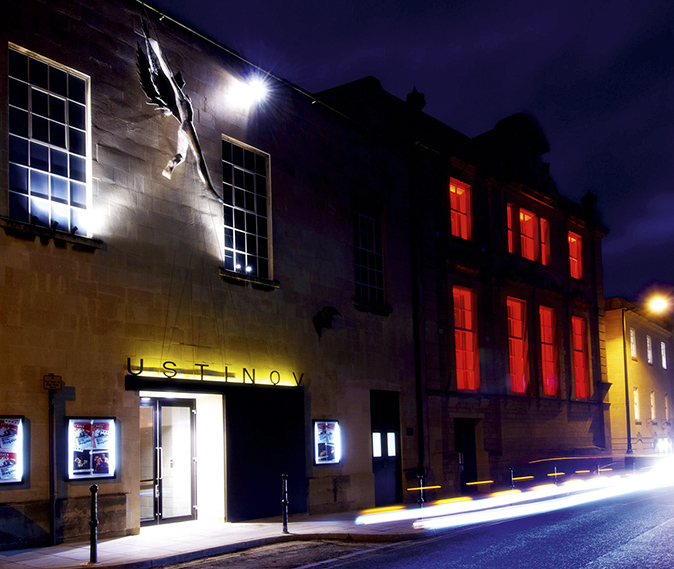
These are good times for Manchester’s Royal Exchange and Edinburgh’s Royal Lyceum, but the theatre I currently visit with greatest anticipation is the Ustinov Studio at the back of Bath’s Theatre Royal. Over the past six years, its adventurous director, Laurence Boswell, has given us plays from Spain, France and Canada and, this year, work from Germany and North America.
Daniel Kehlmann’s The Mentor, with F. Murray Abraham as a testy old writer smelling of whisky and insecurity, quickly moved to the West End. The current production of Will Eno’s The Open House, with Greg Hicks in fine form as a bilious patriarch, also transfers to the Print Room at the Coronet in January, but it’s even better to catch these shows in Nash’s beautiful Bath.
Saddest farewell: Sir Peter Hall
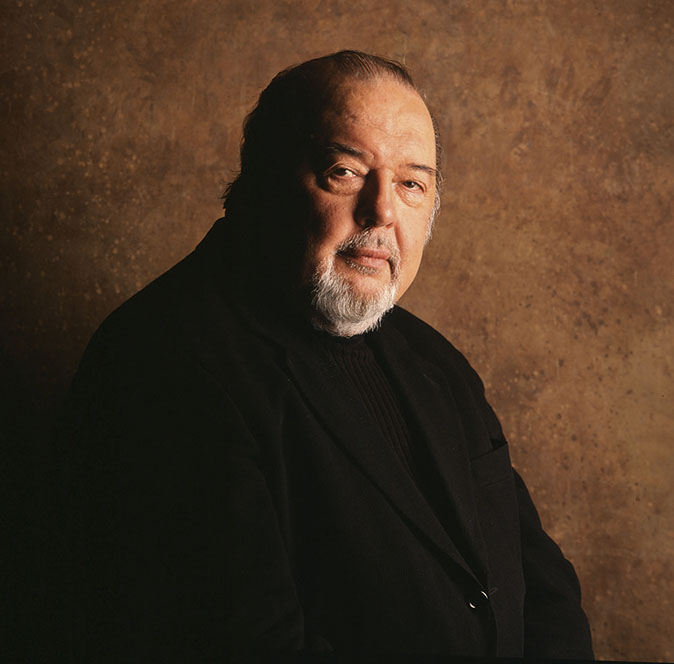
Sir Peter Hall, who founded the RSC and steered the National Theatre into its South Bank home, died in September. He was a great director, a consummate producer, a complex, many-layered man and someone who left the British theatre infinitely richer than he found it.
Biggest hope for 2018: Good new plays – and better re-imagining of old ones
That the torrent of good new plays will continue and be accompanied by a far more assiduous excavation of the great works of the past.
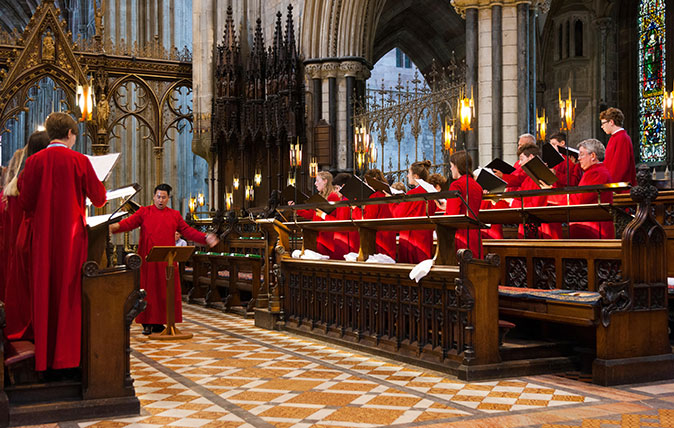
Handel's Messiah: Nine of the greatest places to enjoy a wonderful Christmas tradition
Handel's Messiah is more than just a wonderful piece of music: it's a Christmas tradition in Britain. Ysenda Maxtone-Graham takes

Credit: Alamy
Six audiobooks for Christmas, from Dickens to the latest Booker Prize winner
For book lovers who never get the time to read, audiobooks can make a great present. We've picked out five
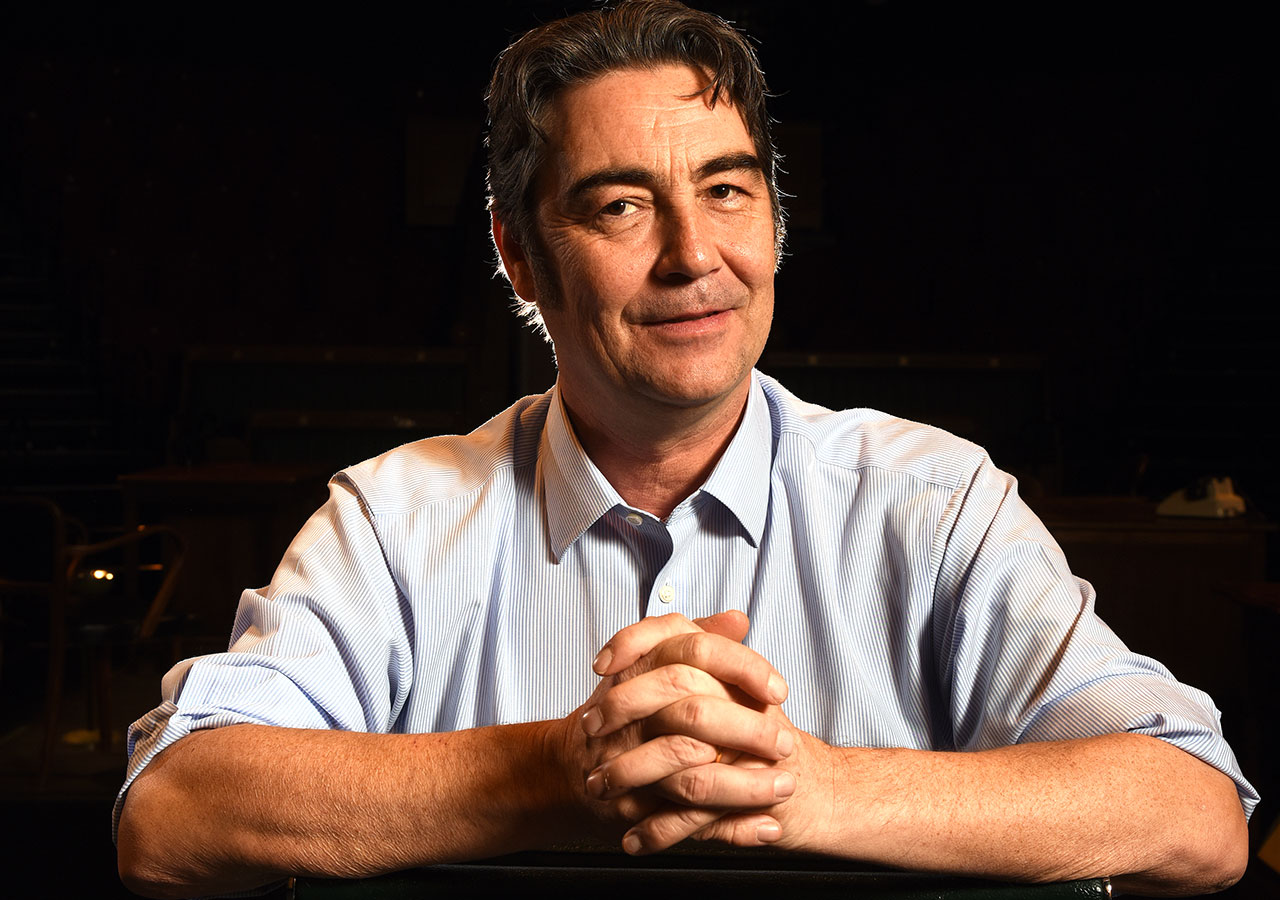
Credit: John Millar / Country Life
'I was 8–1 to be the next Bond just before Daniel Craig got it': Nathaniel Parker on life, acting, and his big near-miss
Nathaniel Parker catches up with Jack Watkins about David Cameron's epic gaffe, and the time he nearly became James Bond.
Country Life is unlike any other magazine: the only glossy weekly on the newsstand and the only magazine that has been guest-edited by HRH The King not once, but twice. It is a celebration of modern rural life and all its diverse joys and pleasures — that was first published in Queen Victoria's Diamond Jubilee year. Our eclectic mixture of witty and informative content — from the most up-to-date property news and commentary and a coveted glimpse inside some of the UK's best houses and gardens, to gardening, the arts and interior design, written by experts in their field — still cannot be found in print or online, anywhere else.
-
 380 acres and 90 bedrooms on the £25m private island being sold by one of Britain's top music producers
380 acres and 90 bedrooms on the £25m private island being sold by one of Britain's top music producersStormzy, Rihanna and the Rolling Stones are just a part of the story at Osea Island, a dot on the map in the seas off Essex.
By Lotte Brundle
-
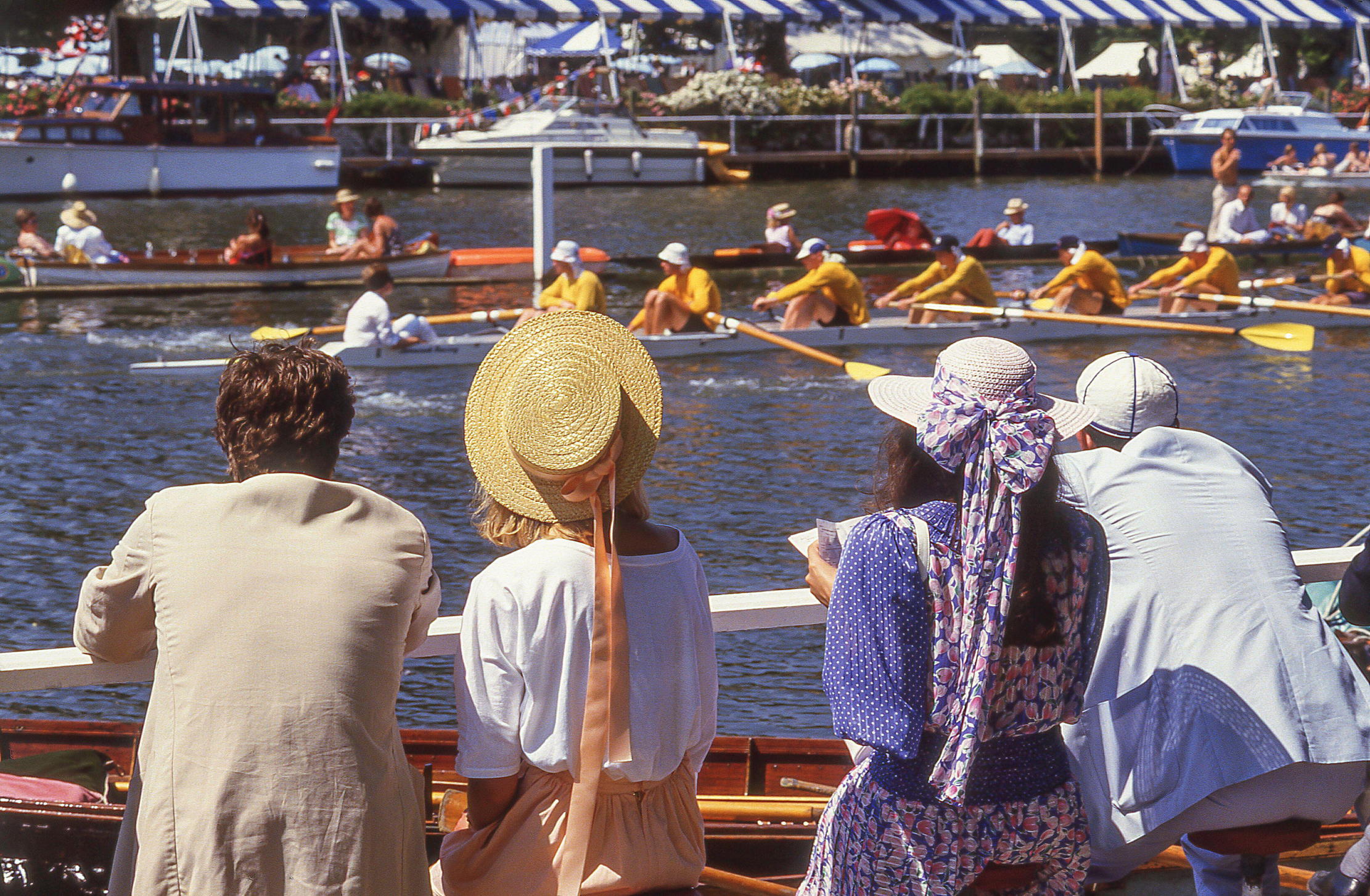 'A delicious chance to step back in time and bask in the best of Britain': An insider's guide to The Season
'A delicious chance to step back in time and bask in the best of Britain': An insider's guide to The SeasonHere's how to navigate this summer's top events in style, from those who know best.
By Madeleine Silver
